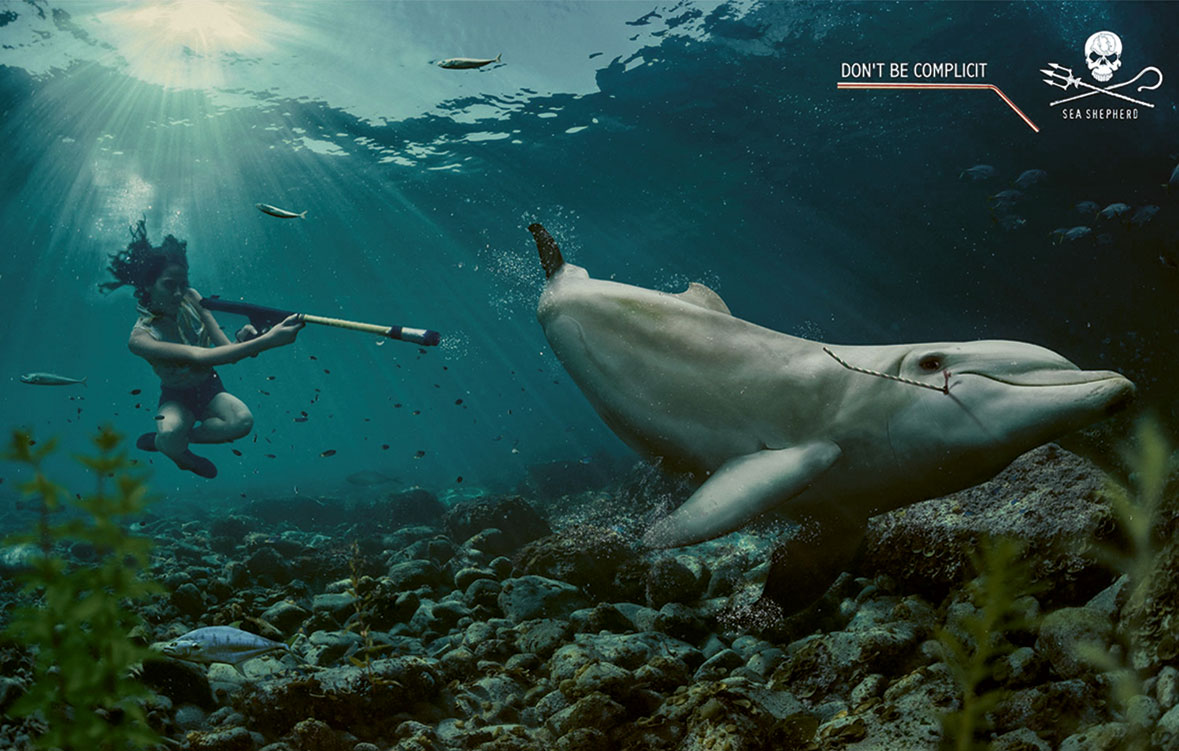Can brands steer the world towards responsible lifestyle?

ACT Responsible is an international non-profit organisation whose mission is to encourage responsible advertising and to unite the community around shared good practices.
In this interview with Isabel Kurata, Co-founder of ACT, we question the role of brands and advertising in the promotion of social and environmental responsibility.
This year was a challenge for everyone – but it was especially hard on the cultural and event world. How did you imagine this year’s exhibition would go and how did you manage to make it a success?
As we have every year since 2002, we were planning to put our exhibition on at the Cannes Lions festival. Fate intervened – but we’ve taken this period of lockdown to reinvent ourselves and hone our strategy. As a result, the 2020 edition of the exhibition is very special to us because it’s the first time we are doing it in a digital format! It’s a new experience for everyone, and we created it in partnership with the respected design school e-artsup. The platform allows visitors to navigate through four galleries, each of which is dedicated to a different subject: Environment, Solidarity, Human Rights and Education. We also added a one-off Covid-19 section. It’s a great record of these crazy times and a way for us to pay tribute to people who devoted their time and energy to reducing the spread of the virus.
What are the main findings?
When you mount an exhibition on a digital platform, you really maximise your audience. In previous years most of the people who saw Great Ads for Good were industry professionals, purely because of where we held the exhibition. This new format allows us to showcase the best of creativity and raise awareness of issues with a far broader audience.
Thematically, we noticed a shift in the way the advertising community tackles fundamental issues. For example, last year’s Environment section included a number of campaigns related to plastic pollution. This year, there is more of a focus on global warming and the negative consequences of a capitalist mindset on the environment.
Thematically, we noticed a shift in the way the advertising community tackles fundamental issues.
What campaigns received the most votes and engagement?
Voting runs until the end of September so there’s still everything to play for. Right now, three have emerged as frontrunners: “Straws’’ created for the Sea Shepherd Conservation Society by Wings the Agency, “Elsa”, a film created by Altmann+Pacreau for the Petits Princes Association, and “Water portraits” from Steve for World Vision. These campaigns gained hundreds of likes in just a few days. It’s really satisfying to see people so engaged but we want more, so please do visit www.greatadsforgood.org and get involved.
What are your favourites?
We’ll give a collective answer for this one! The team’s favourites are “La rue tue” from Altmann+Pacreau for the Abbé Pierre Fondation, “Courage” from Ogilvy Toronto for Unilever (Dove), “Animal borders” from Circus Grey for Amnesty International, “The gun violence history book” from FCB Chicago for the Illinois Council Against Handgun Violence, “Project understood”, a case study from FCB Canada for Google AI/ Canadian Down Syndrome Society, and “Their point of view”, from Tomorrow Communications for Hong Kong PHAB Association.

Can you remind us of the purpose and history of the Act For Goods exhibition?
For the past 19 years, the main purpose of our exhibition has been to show how advertising creativity can help to raise awareness on social and environmental issues. Over the years we’ve seen a big evolution in the way brands advertise their good actions. Fifteen years ago a brand would simply declare its commitment in a very corporate and traditional way. In one of the first exhibitions, we even had a famous oil company declaring, in a beautiful print campaign, ‘we don’t pollute oceans’.
This kind of communication is not possible anymore because customers are much more critical and engaged with what brands claim, as many more have started to advertise their ‘mission’.
It’s now more about what these brands do and what they stand for in the long run. The exhibition also highlights the professionalisation of NGOs’ communication strategy. Indeed, Amnesty International, Greenpeace and WWF have all used advertising creativity to secure the iconic status that they enjoy today. In recent years it‘s become more difficult to distinguish campaigns made for commercial brands from the ones produced for non-profit organisations, which has led to both competition and confusion between the profit and non-profit fields.

In their latest spot, Trapa states ‘’A responsible purpose can make both business and earth win’’. Can companies be both successful and sustainable?
Of course they can! It’s all about the will companies have to change their mindset from a purely profit-based one to having KPIs on issues like social equality and the environment. Covid-19, for instance, is an environmental and a social issue, and what we’re seeing is that it’s possible to make a significant change. When brands really implicate themselves and slow down their CO2 emissions, the positive impacts on the planet are direct and effective.
Do consumers engage more with adverts that promote sustainability and solidarity?
Young people are the game changer, because they are more inclined to engage with brands promoting social responsibility. Mentalities are evolving, but we have to distinguish between declarations and reality. Though 65% of citizens say they want to buy products from a brand advocating sustainability, only 26% of them actually do it. We’re slowly getting there but there’s still room for a lot of improvement (source: The Elusive Green Consumer).
Young people are the game changer, because they are more inclined to engage with brands promoting social responsibility.
Is it a brand’s responsibility to promote sustainable and responsible practices or is it merely a good gesture?
Brands have a responsibility to act in favour of sustainable practices, but we wouldn’t say that a brand promoting these actions is what matters the most. What’s really important is brands engaging in good practices to inspire their customers and other brands to do the same. This is their true responsibility and communication is a useful tool to achieve this.
Via the Great Ads for Good exhibition, you promote both NGOs and brands. How legitimate are these different parties to talk about social and environmental responsibility?
NGOs can usually talk about such issues with legitimacy because they are trustworthy sources.
It’s a bigger challenge for brands, especially if they haven’t embraced this kind of responsibility before. There’s more work to do to prove to people that they have legitimacy. A problem emerges when a brand embraces a “cause” and promotes its own initiatives without collaborating with relevant NGOs. In those cases, brands risk coming off as actually being in competition – and it’s not a competition they’re likely to win. So, there is room for improvement for brands here, making sure that NGOs become partners in a cause. This is at the heart of our mission in the next few years and it’s exciting!

ACT RESPONSIBLE IN A NUTSHELL
ACT Responsible is an international non-profit organisation affiliated with the United Nations Department of Public Information (UNDPI) and part of the Global Compact. ACT stands for Advertising Community Together. Our mission is to inspire and promote responsible advertising and to unite the community around shared good practices on social responsibility and sustainable development. Our ultimate goal is to highlight the power of creativity when it comes to raising awareness on social and environmental issues. We do that by gathering the best issues-inspired ads from around the world and ensuring their visibility through various initiatives developed in partnership with a network of committed players in advertising, media and education. The Great Ads for Good exhibition is our star initiative and has been going for 19 years, after premiering at the Cannes Lions Festival in 2002.
Isabel Kurata, Co-founder at ACT Responsible